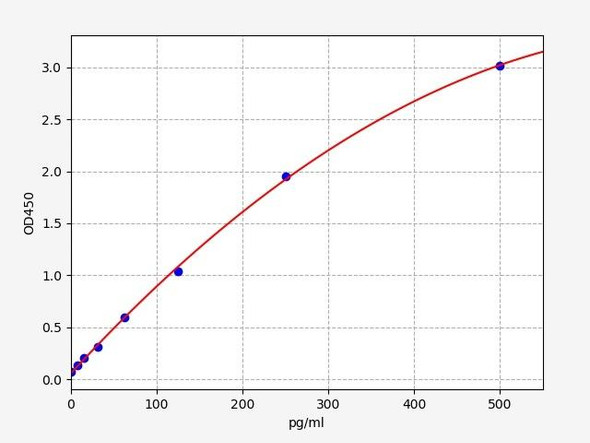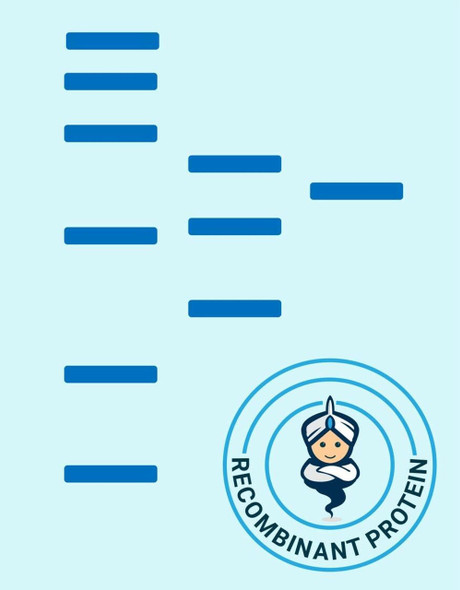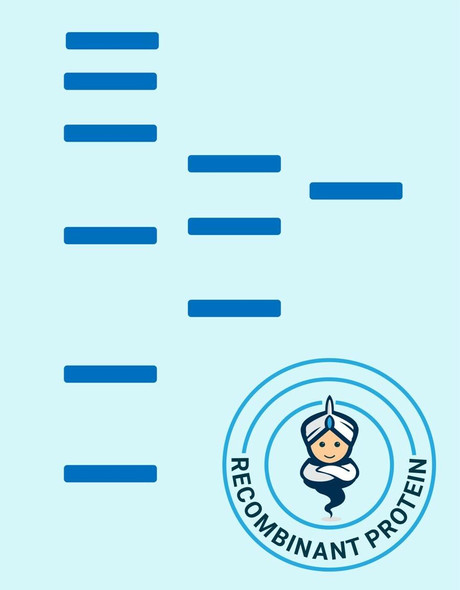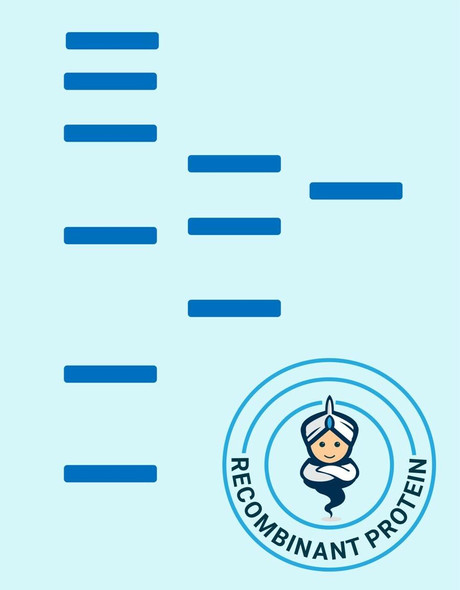Description
| Product Name: | Human CD30L/TNFSF8 Recombinant Protein (His tag) |
| Product Code: | RPES5995 |
| Size: | 20µg |
| Species: | Human |
| Expression Host: | HEK293 Cells |
| Synonyms: | Tumor necrosis factor ligand superfamily member 8, CD30 ligand, CD30-L, CD antigen CD153, TNFSF8, CD30L, CD30LG |
| Mol Mass: | 18.81 kDa |
| AP Mol Mass: | 38 kDa |
| Tag: | C-His |
| Purity: | > 95 % as determined by reducing SDS-PAGE. |
| Endotoxin Level: | Please contact us for more information. |
| Bio Activity: | Testing in progress |
| Sequence: | Gln 63-Asp 234 |
| Accession: | P32971 |
| Storage: | Generally, lyophilized proteins are stable for up to 12 months when stored at -20 to -80°C. Reconstituted protein solution can be stored at 4-8°C for 2-7 days. Aliquots of reconstituted samples are stable at < -20°C for 3 months. |
| Shipping: | This product is provided as lyophilized powder which is shipped with ice packs. |
| Formulation: | Lyophilized from sterile PBS, pH 7.4. Normally 5 % - 8 % trehalose, mannitol and 0.01% Tween80 are added as protectants before lyophilization. Please refer to the specific buffer information in the printed manual. |
| Reconstitution: | Please refer to the printed manual for detailed information. |
| Background: | CD30 ligand (CD30L), also known as CD153 and TNFSF8, is a membrane-associated glycoprotein belonging to the TNF superfamily and TNFR superfamily, and is a specific ligand for CD30/TNFRSF8 originally described as a cell surface antigen and a marker for Hodgkin lymphoma and related hematologic malignancies. CD30L is a type-II membrane glycoprotein expressed on activated T cells, stimulated monocyte-macrophages, granulocytes, eosinophils, and some Burkitt-like lymphoma cell lines. CD30L is capable of transducing signals through CD30 on different CD30+ lymphoma cell lines, and mediates pleiotropic biologic effects including cell proliferation, activation, differentiation, as well as cell death by apoptosis. CD30-CD30 ligand interaction has been suggested to have a pathophysiologic role in malignant lymphomas, particularly Hodgkin disease, large cell anaplastic lymphomas and Burkitt lymphomas, and is also involved in activation and functioning of the T cell-dependent immune response. Thus, CD153 and its receptor CD30 are regarded as therapeutic targets in hematologic malignancies, autoimmune and inflammatory diseases. |






